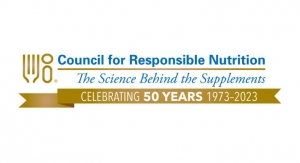By Mike Montemarano, Associate Editor, Nutraceuticals World 04.03.20
In the midst of COVID-19, consumers and suppliers alike have been wondering how supply chains in the global food and dietary supplements industry will fare. According to trade organizations in the nutritional products industry, we are beginning to see significant impact on many points in the global supply chain for functional foods and dietary supplements.
Reports that there has been a wholesale impact on farming, manufacturing, testing, packaging, shipping, and selling are prevalent, and leading public health organizations are projecting that many regions of the globe may still be weeks if not months away from reaching a peak number of COVID-19 cases.
Some trade organizations have responded to a request from the U.S. Department of Agriculture (USDA) for information on potential disruptions to agricultural supply chains due to COVID-19. These contributions will help regulators and the industry at large develop a point-in-time assessment of COVID-19’s impact on the supply chain so far, after the first few weeks in which the virus was declared a pandemic.
Dietary supplement companies, by and large, have a greater number of moving parts in their supply chains compared to traditional food manufacturers, Steve Mister, CRN’s president and CEO said in a letter to the USDA.
According to IRI data, demand for various dietary supplements surged at the onset of the coronavirus in the U.S. at unprecedented rates. Overall, supplement sales rose 6% during the first week of March, but cold and flu remedies and supplements shown to have impact on immune function surged. Vitamin C spiked 146%, zinc grew by 255%, and elderberry supplements were up 415%. Some sleep supplements, such as melatonin, also saw an unusually sharp rise in sales.
For the most part, the surge appears to have preceded most of the endemic issues surrounding the supply chain, and now shipping and manufacturing problems are beginning to compile with a demand that many suppliers were struggling to keep up with in the first place.
Mister noted some of the most prevalent concerns raised by CRN membership. The top concern was ingredients and supplies sourced from China.
“The closures associated with the pandemic in China have closed many factories,” Mister said. “Our members raise concerns about raw ingredients as well as packaging materials coming from China. Several members noted that China appears to be coming back ‘online’ but they anticipate long production and transportation delays resulting in a need for much longer planning and procurement time frames.”
The nationwide shutdown of all manufacturing and transportation in India has caused companies that source from the country a great deal of trouble.
“Several report issues with obtaining supply and express worries of availability of materials and disruptions and delays in transporting materials to the U.S.,” Mister said.
He went on to mention that trouble in sourcing materials from Australia and New Zealand are prevalent, and this is believed to be due to their geological distance from other continents, combined with a reduced availability of cargo flights and shipping vessels.
Lastly, Mister said that a surge in consumer demand for products has been difficult for many companies to keep up with.
“Coronavirus has dramatically increased U.S. consumer demand in many dietary supplements, whether it is for improved nutrition during the crisis, assistance with sleep and stress relief, or supporting a strong immune function to improve general resistance to health threats. Increased sales have created a supply chain not equipped to handle the surge in demand. Many suppliers are not able to guarantee supply above original forecasted needs from before the pandemic, despite increased demand. Transportation is impacted by staff shortages, less available freight capacity and increased costs due to less supply.”
Loren Israelsen, president of the United Natural Products Alliance, said UNPA has been assessing supply chain shortages internally, even though it wasn’t contacted by USDA for information. Overall, the situation remains very fluid, and many factors are at play.
“Short stocks are clearly becoming a critical issue. As dietary supplement sales have jumped, the raw material pipeline is under great stress,” Israelsen said. “We are concerned about quality and spiking issues. Shortages and rising prices are the recipe for speculators and bottom feeders to do their dark work.”
While China is ramping up production, India is now on lock down, he noted. Ships and containers are still out of rotation and air freight prices are "sky high.” The shortage of personal protective equipment (PPE) used in manufacturing facilities is also a concern, said Israelsen.
Herbal Products
The American Herbal Products Association (AHPA) offered its assessment in response to the USDA inquiry, highlighting the many herbs and herbal products marketed as foods, dietary supplements, drugs, cosmetics, and other types of goods.
The association reported that it has seen shortages in “Botanical materials consisting of unprocessed plants and plant extracts, from Brazil, Bulgaria, Canada, China, France, India, Indonesia, Italy, Mexico, and Taiwan. Identified examples include: agave, arnica, bilberry, Boswellia, cilantro, echinacea, elderberry, gentian, hawthorn, linden, and lomatium, passionflower, pomegranate, reishi, and turmeric.” Lentils and rice have also been affected.
Italy and New Zealand have been struggling to maintain the flow of proprietary ingredients, AHPA said.
Like CRN, AHPA’s membership has reported that shortages in vitamins and other dietary ingredients are most prevalent in those sourced from China and India, including CoQ10, ascorbic acid, and calcium D glucarate, as well as “letter” vitamins.
Will This Become Self-Perpetuating?
Daniel Fabricant, PhD, president and CEO of the Natural Products Association, spoke with Nutraceuticals World about the impacts he’s heard from members.
He believes the biggest issue, by and large, will be keeping distribution channels open, as the closures of retailers will negatively impact the supply chain in a multifaceted way for a longer term. Keeping small businesses afloat through regulatory hurdles, he said, is more urgent to address at this point than scarcities in any given supply chain.
With retailers and other suppliers facing potential closures, most of which are/would likely be due to regulatory matters, a lack of competition in distribution channels means extra bottlenecking, and a lack of competition in pricing that he believes will be a self-perpetuating problem so long as facility shutdowns are a possibility.
“Regulatory matters are having the biggest impact right now,” Fabricant said. “A lag in the supply chain for our industry is nothing new. You might start to see serious scarcity in another month. Right now, the biggest thing is making sure no one is scooping up inventory after everyone is shut down. If the internet is the only one selling products, it’s the only one buying products, which creates chokepoints in the supply chain, and there is no room to innovate. There’s a role for everyone to play in keeping the supply chains vibrant, and a big component of that is the distribution channels.”
Fabricant said that NPA is concerned about how FDA’s suspensions of both domestic and foreign facilities and shipments will impact the supply chain as a whole, not just in terms of efficiency, but in terms of the integrity of products themselves.
“FDA announced today (Apr. 3) that it will be conducting virtual inspections, but we don’t know what that looks like,” Fabricant said. “Without cops at the border, things could quickly take a negative turn which we desperately don’t want.” Fabricant said that this is especially important for any new dietary ingredients (NDIs), which are new to inspectors as well as the market.
He attributed most of the immediate shortages at this time to those seen in every other industry: panic-buying at the consumer level.
“With immune supplements, I wouldn’t be surprised if you started seeing a lot of resale on Amazon or Ebay in the future. At that point we’ll really start to have a better idea of where there’s a glut, especially if supplements are being sold at double or triple the price. That will indicate where supply chains are really drying up.”
GOED Reports Little Disruption for Omega-3s
The Global Organization for EPA and DHA (GOED), said the supply chains for EPA and DHA, which stem from facilities predominantly located in Norway, Chile, China, Germany, Canada, Spain, and the U.S., remain almost entirely intact.
“For the vast majority of members we’ve talked to, it’s business as usual,” GOED said.
“The biggest pressure seems to be on logistics,” the organization continued in a statement. “While omega-3 oil and finished goods continue to be shipped around the world, border closures, fewer airplanes in operation, and issues with trucking companies are slowing down and causing a surge in freight costs, particularly air freight.”
GOED said omega-3 products are flying off shelves, with at least a double digit growth, though the growth hasn’t been quantified more specifically than that yet.
The future is still somewhat uncertain for Peru’s fishing season, which might be able to commence after the extended national state of emergency there reaches its end/renewal date of Apr. 12. “One GOED member stated that he believes as long as the industry can show the government that they have an emergency plan in place, the fishing season could commence, hopefully by the end of April,” GOED said.
All Countries
Some of the supply issues that companies are facing are endemic to every region of the globe. It’s reported by CRN that the issue of being unable to keep up with a surge in consumer demand is not unique to one region. Additionally, it appears that freight capacity has declined and, accordingly, shipping costs are rising, in a way that is irrespective of any one specific part of the world. In addition to an insufficient supply of cleaning and sanitation supplies, PPE, and masks becoming unavailable to supplement production sites everywhere for obvious reasons, there are issues with acquiring domestic raw materials, including various sugars and tapioca.
Additionally, labor disruption appears to be a major issue worldwide. While in the U.S., the Department of Homeland Security and almost all state governments have exempted dietary supplement manufacturing facilities from lockdown orders which have otherwise shut down a plethora of businesses, labor remains a daily, fluid variable virtually everywhere.
Raw material and packaging material shortages have also been ubiquitous in all regions of the globe according to companies surveyed, CRN said. This is especially true in terms of immune-related products and ingredients such as botanicals and vitamins, and the outlook for these products is expected to worsen as more safety stocks in the marketplace are depleted.
Vitamin C’s availability is fluctuating, according to CRN, and logistics issues in the U.S. and Brazil are putting a damper on the collagen supply chain.
China
In China, CRN reported that it is safe to plan for delays of at least one month on any outgoing dietary supplement ingredients as a general rule, meaning that planning and procurement processes must begin a month earlier than usual. Additionally, CRN reported that China is experiencing short supplies and high prices on biotin, disruption in berberine supply, problems related to production changes at the major global manufacturer of CoQ10, temporary struggles procuring glass bottles, a spat of short-term disruptions in overall raw materials and packaging along with some ingredients which are region-specific.
Europe
Like China, CRN said companies have applied a general rule of anticipating at least a month-long delay for any supplement ingredients coming out of Europe. Delays on cargo stem from issues with clearances, which in turn have caused shipping backlogs affecting the industry. Additionally, a shutdown in France has caused delays in the raw material used for bovine collagen, and there have been problems obtaining Alpha Lipoic Acid from Germany. Italy, one of the hardest-hit countries thus far by COVID-19, is experiencing delays in the procurement of Quatrefolic, as well as issues obtaining black elderberry, and major delays in Boswellia, curcuma, and silybin.
India
India, a country with a population of over a billion people, is of major concern not just in terms of supply chains but of a massive projected loss of life. Currently, there is a wholesale shutdown of the entire nation’s transportation, and many provinces and regions are establishing border restrictions within the country. The lockdown came on the tails of violent and even deadly protest unrelated to COVID-19 and have effectively paralyzed supply chains for any industry there.
All dietary supplement ingredients, including the many flagship herbs and botanicals central to Ayurveda, are immobilized, and all production has been halted. Only 50% of the staff at Customs and the Central Government are working currently. CRN reported it anticipates cargo flights will get permission to arrive and depart within the next two to three days, but there is a lack of both manpower and planes which will continue to present challenges.
United States
In the U.S., there is a major impact on supply chains due to shelter-in-place orders and increased freight costs due to availability; suppliers are running low on inventory levels due to import constraints. Many of the issues appear to be related to staffing shortages—truck drivers, third-party lab testing employees, and staffing within supplement companies themselves are contributing to disruption.
Reports that there has been a wholesale impact on farming, manufacturing, testing, packaging, shipping, and selling are prevalent, and leading public health organizations are projecting that many regions of the globe may still be weeks if not months away from reaching a peak number of COVID-19 cases.
Some trade organizations have responded to a request from the U.S. Department of Agriculture (USDA) for information on potential disruptions to agricultural supply chains due to COVID-19. These contributions will help regulators and the industry at large develop a point-in-time assessment of COVID-19’s impact on the supply chain so far, after the first few weeks in which the virus was declared a pandemic.
Dietary supplement companies, by and large, have a greater number of moving parts in their supply chains compared to traditional food manufacturers, Steve Mister, CRN’s president and CEO said in a letter to the USDA.
According to IRI data, demand for various dietary supplements surged at the onset of the coronavirus in the U.S. at unprecedented rates. Overall, supplement sales rose 6% during the first week of March, but cold and flu remedies and supplements shown to have impact on immune function surged. Vitamin C spiked 146%, zinc grew by 255%, and elderberry supplements were up 415%. Some sleep supplements, such as melatonin, also saw an unusually sharp rise in sales.
For the most part, the surge appears to have preceded most of the endemic issues surrounding the supply chain, and now shipping and manufacturing problems are beginning to compile with a demand that many suppliers were struggling to keep up with in the first place.
Mister noted some of the most prevalent concerns raised by CRN membership. The top concern was ingredients and supplies sourced from China.
“The closures associated with the pandemic in China have closed many factories,” Mister said. “Our members raise concerns about raw ingredients as well as packaging materials coming from China. Several members noted that China appears to be coming back ‘online’ but they anticipate long production and transportation delays resulting in a need for much longer planning and procurement time frames.”
The nationwide shutdown of all manufacturing and transportation in India has caused companies that source from the country a great deal of trouble.
“Several report issues with obtaining supply and express worries of availability of materials and disruptions and delays in transporting materials to the U.S.,” Mister said.
He went on to mention that trouble in sourcing materials from Australia and New Zealand are prevalent, and this is believed to be due to their geological distance from other continents, combined with a reduced availability of cargo flights and shipping vessels.
Lastly, Mister said that a surge in consumer demand for products has been difficult for many companies to keep up with.
“Coronavirus has dramatically increased U.S. consumer demand in many dietary supplements, whether it is for improved nutrition during the crisis, assistance with sleep and stress relief, or supporting a strong immune function to improve general resistance to health threats. Increased sales have created a supply chain not equipped to handle the surge in demand. Many suppliers are not able to guarantee supply above original forecasted needs from before the pandemic, despite increased demand. Transportation is impacted by staff shortages, less available freight capacity and increased costs due to less supply.”
Loren Israelsen, president of the United Natural Products Alliance, said UNPA has been assessing supply chain shortages internally, even though it wasn’t contacted by USDA for information. Overall, the situation remains very fluid, and many factors are at play.
“Short stocks are clearly becoming a critical issue. As dietary supplement sales have jumped, the raw material pipeline is under great stress,” Israelsen said. “We are concerned about quality and spiking issues. Shortages and rising prices are the recipe for speculators and bottom feeders to do their dark work.”
While China is ramping up production, India is now on lock down, he noted. Ships and containers are still out of rotation and air freight prices are "sky high.” The shortage of personal protective equipment (PPE) used in manufacturing facilities is also a concern, said Israelsen.
Herbal Products
The American Herbal Products Association (AHPA) offered its assessment in response to the USDA inquiry, highlighting the many herbs and herbal products marketed as foods, dietary supplements, drugs, cosmetics, and other types of goods.
The association reported that it has seen shortages in “Botanical materials consisting of unprocessed plants and plant extracts, from Brazil, Bulgaria, Canada, China, France, India, Indonesia, Italy, Mexico, and Taiwan. Identified examples include: agave, arnica, bilberry, Boswellia, cilantro, echinacea, elderberry, gentian, hawthorn, linden, and lomatium, passionflower, pomegranate, reishi, and turmeric.” Lentils and rice have also been affected.
Italy and New Zealand have been struggling to maintain the flow of proprietary ingredients, AHPA said.
Like CRN, AHPA’s membership has reported that shortages in vitamins and other dietary ingredients are most prevalent in those sourced from China and India, including CoQ10, ascorbic acid, and calcium D glucarate, as well as “letter” vitamins.
Will This Become Self-Perpetuating?
Daniel Fabricant, PhD, president and CEO of the Natural Products Association, spoke with Nutraceuticals World about the impacts he’s heard from members.
He believes the biggest issue, by and large, will be keeping distribution channels open, as the closures of retailers will negatively impact the supply chain in a multifaceted way for a longer term. Keeping small businesses afloat through regulatory hurdles, he said, is more urgent to address at this point than scarcities in any given supply chain.
With retailers and other suppliers facing potential closures, most of which are/would likely be due to regulatory matters, a lack of competition in distribution channels means extra bottlenecking, and a lack of competition in pricing that he believes will be a self-perpetuating problem so long as facility shutdowns are a possibility.
“Regulatory matters are having the biggest impact right now,” Fabricant said. “A lag in the supply chain for our industry is nothing new. You might start to see serious scarcity in another month. Right now, the biggest thing is making sure no one is scooping up inventory after everyone is shut down. If the internet is the only one selling products, it’s the only one buying products, which creates chokepoints in the supply chain, and there is no room to innovate. There’s a role for everyone to play in keeping the supply chains vibrant, and a big component of that is the distribution channels.”
Fabricant said that NPA is concerned about how FDA’s suspensions of both domestic and foreign facilities and shipments will impact the supply chain as a whole, not just in terms of efficiency, but in terms of the integrity of products themselves.
“FDA announced today (Apr. 3) that it will be conducting virtual inspections, but we don’t know what that looks like,” Fabricant said. “Without cops at the border, things could quickly take a negative turn which we desperately don’t want.” Fabricant said that this is especially important for any new dietary ingredients (NDIs), which are new to inspectors as well as the market.
He attributed most of the immediate shortages at this time to those seen in every other industry: panic-buying at the consumer level.
“With immune supplements, I wouldn’t be surprised if you started seeing a lot of resale on Amazon or Ebay in the future. At that point we’ll really start to have a better idea of where there’s a glut, especially if supplements are being sold at double or triple the price. That will indicate where supply chains are really drying up.”
GOED Reports Little Disruption for Omega-3s
The Global Organization for EPA and DHA (GOED), said the supply chains for EPA and DHA, which stem from facilities predominantly located in Norway, Chile, China, Germany, Canada, Spain, and the U.S., remain almost entirely intact.
“For the vast majority of members we’ve talked to, it’s business as usual,” GOED said.
“The biggest pressure seems to be on logistics,” the organization continued in a statement. “While omega-3 oil and finished goods continue to be shipped around the world, border closures, fewer airplanes in operation, and issues with trucking companies are slowing down and causing a surge in freight costs, particularly air freight.”
GOED said omega-3 products are flying off shelves, with at least a double digit growth, though the growth hasn’t been quantified more specifically than that yet.
The future is still somewhat uncertain for Peru’s fishing season, which might be able to commence after the extended national state of emergency there reaches its end/renewal date of Apr. 12. “One GOED member stated that he believes as long as the industry can show the government that they have an emergency plan in place, the fishing season could commence, hopefully by the end of April,” GOED said.
All Countries
Some of the supply issues that companies are facing are endemic to every region of the globe. It’s reported by CRN that the issue of being unable to keep up with a surge in consumer demand is not unique to one region. Additionally, it appears that freight capacity has declined and, accordingly, shipping costs are rising, in a way that is irrespective of any one specific part of the world. In addition to an insufficient supply of cleaning and sanitation supplies, PPE, and masks becoming unavailable to supplement production sites everywhere for obvious reasons, there are issues with acquiring domestic raw materials, including various sugars and tapioca.
Additionally, labor disruption appears to be a major issue worldwide. While in the U.S., the Department of Homeland Security and almost all state governments have exempted dietary supplement manufacturing facilities from lockdown orders which have otherwise shut down a plethora of businesses, labor remains a daily, fluid variable virtually everywhere.
Raw material and packaging material shortages have also been ubiquitous in all regions of the globe according to companies surveyed, CRN said. This is especially true in terms of immune-related products and ingredients such as botanicals and vitamins, and the outlook for these products is expected to worsen as more safety stocks in the marketplace are depleted.
Vitamin C’s availability is fluctuating, according to CRN, and logistics issues in the U.S. and Brazil are putting a damper on the collagen supply chain.
China
In China, CRN reported that it is safe to plan for delays of at least one month on any outgoing dietary supplement ingredients as a general rule, meaning that planning and procurement processes must begin a month earlier than usual. Additionally, CRN reported that China is experiencing short supplies and high prices on biotin, disruption in berberine supply, problems related to production changes at the major global manufacturer of CoQ10, temporary struggles procuring glass bottles, a spat of short-term disruptions in overall raw materials and packaging along with some ingredients which are region-specific.
Europe
Like China, CRN said companies have applied a general rule of anticipating at least a month-long delay for any supplement ingredients coming out of Europe. Delays on cargo stem from issues with clearances, which in turn have caused shipping backlogs affecting the industry. Additionally, a shutdown in France has caused delays in the raw material used for bovine collagen, and there have been problems obtaining Alpha Lipoic Acid from Germany. Italy, one of the hardest-hit countries thus far by COVID-19, is experiencing delays in the procurement of Quatrefolic, as well as issues obtaining black elderberry, and major delays in Boswellia, curcuma, and silybin.
India
India, a country with a population of over a billion people, is of major concern not just in terms of supply chains but of a massive projected loss of life. Currently, there is a wholesale shutdown of the entire nation’s transportation, and many provinces and regions are establishing border restrictions within the country. The lockdown came on the tails of violent and even deadly protest unrelated to COVID-19 and have effectively paralyzed supply chains for any industry there.
All dietary supplement ingredients, including the many flagship herbs and botanicals central to Ayurveda, are immobilized, and all production has been halted. Only 50% of the staff at Customs and the Central Government are working currently. CRN reported it anticipates cargo flights will get permission to arrive and depart within the next two to three days, but there is a lack of both manpower and planes which will continue to present challenges.
United States
In the U.S., there is a major impact on supply chains due to shelter-in-place orders and increased freight costs due to availability; suppliers are running low on inventory levels due to import constraints. Many of the issues appear to be related to staffing shortages—truck drivers, third-party lab testing employees, and staffing within supplement companies themselves are contributing to disruption.




























